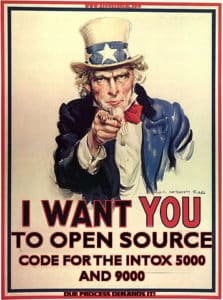
The Volkswagen scandal shines new light on the nationwide litigation pushed by DUI lawyers for companies like CMI, Inc of Kentucky to reveal their secret computer source code for alcohol breath testing devices like the Intoxilyzer 5000 and 9000 used in Georgia which are deemed presumptively accurate measures of breath alcohol by statute and equivalent legally to a more accurate but expensive and time-consuming blood alcohol test. CMI has steadfastly refused to produce their secret source code in court for lawyers and juries to examine despite it containing only widely known and publicly available algorithms and formulas and only allowing prohibitively expensive computer-free analysis in their corporate headquarters in Kentucky.
This injustice was eloquently expressed by Georgia Supreme Court Justice Nahmias in Davenport v. State where he wrote,
” when the State [of Georgia] enacts a statutory scheme in which: (1) evidence usually determinative of the defendant’s guilt (e.g., blood alcohol content in a per se DUI prosecution) is tested and reported, not by forensic experts who testify and face cross-examination on the reliability of their methods and the accuracy of their results, but rather by a machine (e.g., the Intoxilyzer 5000) that takes in a specimen from the defendant and, through internal mechanisms and computer code, generates a test report; (2) the machine’s computer code is unavailable to the defendant through discovery or compulsory process because the State avoids possessing it in Georgia; (3) the machine’s test result is admissible at trial through a witness who can say that he was qualified to operate the machine and it operated as designed (see, e.g., OCGA § 40-6-392(a)), but who has no knowledge about whether the machine was in fact designed to produce reliable and accurate results under the circumstances presented; and (4) the machine uses up the specimen, with nothing maintained for later confirmation or independent testing.”
The Volkswagen Proprietary Source Code Scandal proves that Proprietary Source Code and legal regulation -be it EPA emissions standards or Georgia DUI prosecutions- do not mix. Software used in public regulation and law, as well as things like medical devices, should be open, public, and freely audit-able so there is no incentive to cheat to get a deal or a market advantage over a competitor at the expense of the health, freedom or safety of the American People.
-Author: George Creal

